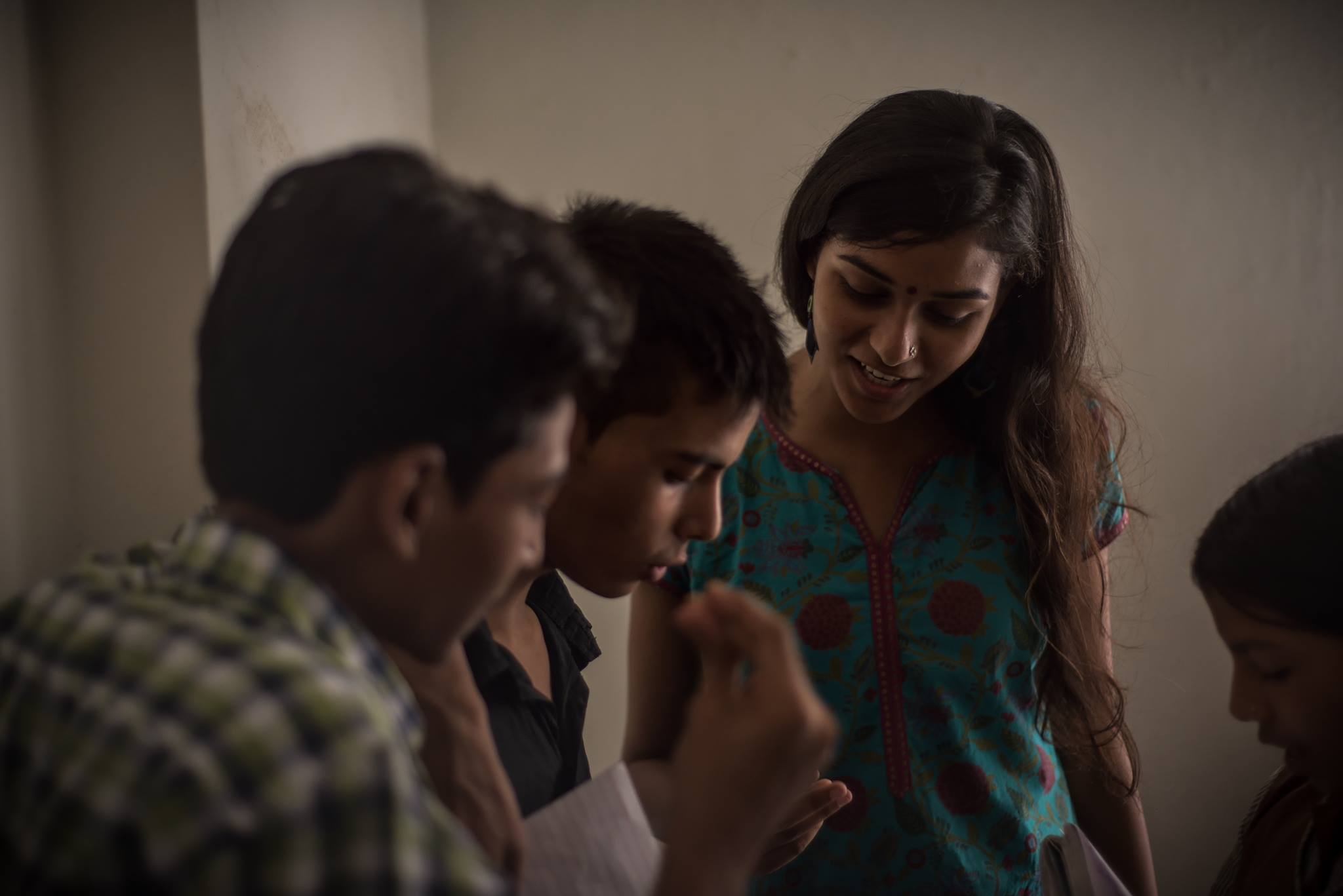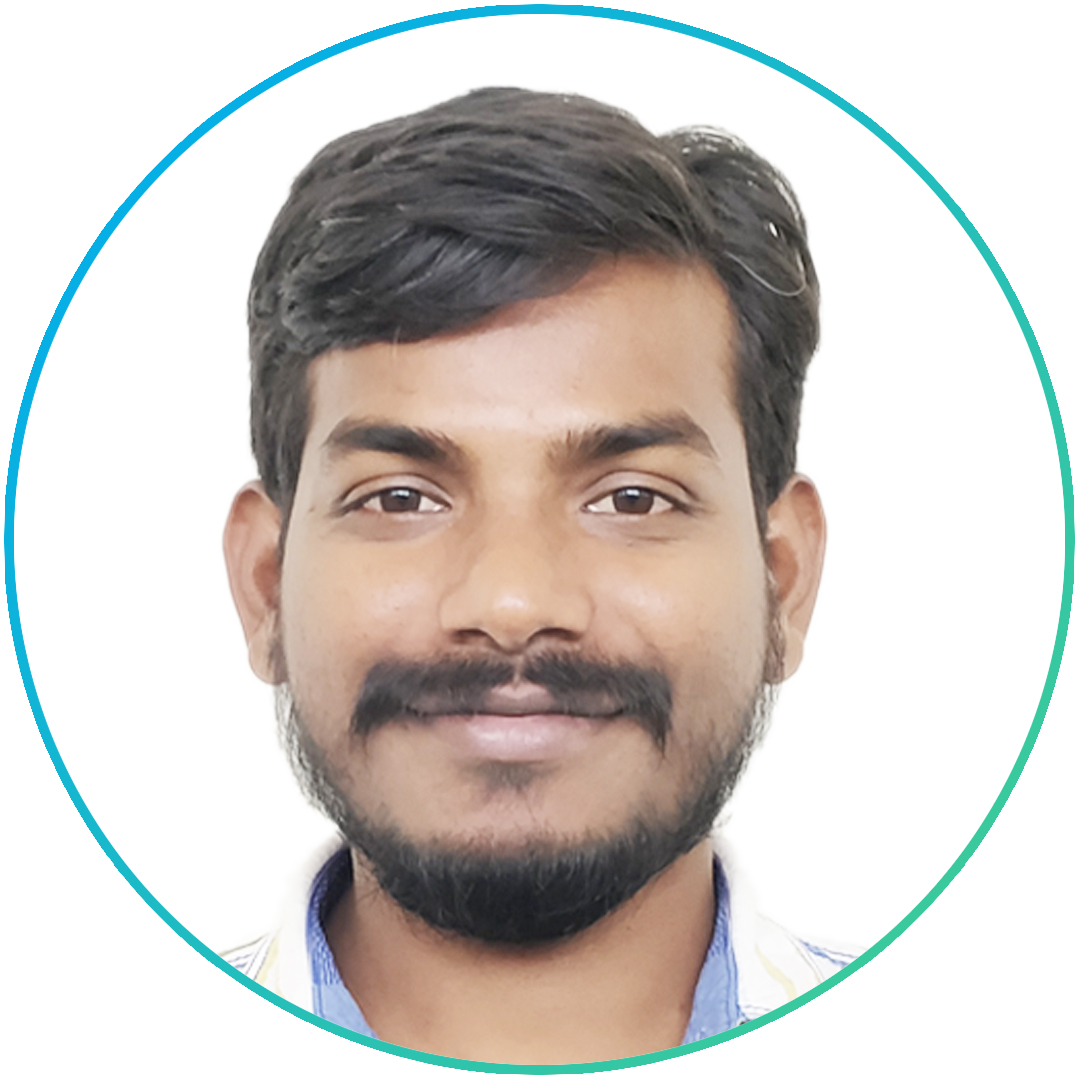
These Two Women Are Using Music & Poetry To Change The Way We Educate Our Children
 |
|I grew up in a middle-class Delhi home where my parents worked really hard to give me and my brother a comfortable life and send us to what was considered to be one of the best schools in the city. I lived in the premises of one of the biggest government hospitals (AIIMS) and always saw pavements, metro stations and wards full of people who were ill mostly ailed by diseases that could have been diagnosed and treated earlier had there been awareness, hygienic surroundings and education. I began writing at a young age to make sure what I am seeing and believing are in fact real. According to my mother, I came to know tunes even before I became comfortable with words. In my childhood, my being inducted into learning the arts, be it classical Hindustani music, Kathak or the fine arts, was a natural inclination of my parents because of their exposure to the same and that they could see the latent inclination within me to want to express in more ways than just spoken and written. This resulted in over 15 years of learning Classical Vocal music and Kathak under renowned artists and gurus, and it never crossed my mind to question my privilege in having access to this sort of training.
During the summer of 2012, in a small town, called Kolwan, near Pune the gap of having access to opportunities for development of individuality first struck me. In all my interactions there, I met many children and young adults who were looking for further training, had an immense longing for ‘learning’ but were limited by the circumstances of their socio-economic conditions. Following this, the first time, I tried to work as a teacher during Gramya Manthan in a village school in Uttar Pradesh (Kanpur-Dehat) with walls and a building that resembled more shambles than school.
“I realised that there was much joy with kids and especially in exploring an art based learning and inquiry-based approach. The kids there would every day teach me more music than I could teach them and I saw rowdy boys and girls show more teamwork and cooperation than I thought possible when the way of learning was driven by the skill of arts, all in a matter of just a few days.”
After I had come back to Delhi, I spent most of my formative years during graduation questioning the inequity that had wrapped itself so tightly around each one and trying to find my voice even when apathy seemed to be a universal emotion within most of the people I studied with. In the process, I met and became a part of the beautiful, inspiring family of Youth Alliance and found a voice of truth in Ravi Bhaiya (from Manzil) and discovered other pilgrims on this path of being the change. They held me close like family and allowed me to find myself. Youth Alliance has always been a mirror for me, “you find your own heart in the spoken and unspoken samvaad with others, and yet in a sense, you lose whatever you had believed is your idea of self.”
In 2015, I started teaching at an under-resourced government girls school near Delhi-Haryana border as part of the Teach for India Fellowship. There I saw a lot of potential, curiosity and learner’s mindset in children that went completely untapped and because of their socio-economic conditions and the quality of schooling within government schools. The expectations from kids were mostly limited to getting marks by rote-learning or cheating exams. Added to this were enormous challenges ingrained within the community and each of my 77 girls in the classroom had stories and contexts that were unimaginable to me, and they were wondrously brave in their right. We called ourselves the Class of Khojis, that’s probably because in everything we did in class, or outside, we were also exploring our self and looking for our passion, our aspirations and challenging our status quo of circumstance. “But most of the kids in the school didn’t know what they were studying and why that learning mattered to them, they couldn’t connect the content of their education to big ideas, or their life.”
As a way of experimenting, Riddhi and I started using music and poetry as tools within our class rooms and communities, and it led to remarkable discoveries. Kids could comprehend what Gandhi ji meant by ‘being the change’ when they sang Tagore’s ‘Ekla Cholo Re’ and read Faiz’s ‘Hum Dekhenge’, or how artists can shape dialogue and create social change (think Vietnam war, Flower power movement and John Lennon), or how music and words can have a profound impact on expressing ourselves and galvanizing people (think American Blues and slavery), we even did sessions on Gay Rights (think Across the Universe’s cover of I want to Hold your hand) after which they were inspired to start talking about taboo subjects like LGBTQ rights within their communities. The ripples of this learning spread fast, and unlike the mainstream rote learning they did, this was easier to apply to their life, and it was not based on particular correct answers or a set objective of inquiry. It led to greater academic outcomes and in some cases, changes in the family dynamics as well. We further prototyped it with a small group of children in Sangam Vihar (a large, unauthorised settlement in Delhi) and that month of working really hard and meetings that lasted till 3 am every day with Riddhi and I discussing, fighting, dreaming, arguing, envisioning, hashing out things was what really kickstarted what Riyaaz would look like. That was also when we gave it a name- once we found the right name, we knew all of a sudden what the program should ‘feel’ like.

As time progressed, we also became investees of UnLtd Delhi which has helped regarding clarity of thought, access to mentorship and connecting to other entrepreneurs. This year we came up with a framework for Riyaaz with 3 phases based on all our experiments and learning from last year. We are currently working with three community centres = three circles of 15-20 kids + few Fellows this year. That’s a total of about 50-60 kids across North and South Delhi. We run around the week trying to balance our day work (Ragini is in the last month of her Fellowship while Riddhi is currently working on the Innovations team) and we do this, simply because of the unbridled joy that it is to sit in a circle and co-create experiences with kids!

The elemental part of these sessions is a musical knowledge piece, which is just refining their singing ability and knowledge of basic Hindustani classical because it’s what we both learned growing up- and we also introduce new concepts and values using music as the tool. We emphasis on a lot of collaboration and the value of diversity so over time we’ve seen kids in the circle despite coming from different schools and communities become freer with each other and more comfortable sharing. “We’re on the path and each day is a new learning journey.”
Currently, not many organisations are working within communities on using arts as a tool of change for marginalised children. The more we have been working with the kids, educators and reading up research articles on child-centric curriculum and pedagogy, we realize that education of life for anyone, no matter which street they grew up on, is not complete without the development of individuality and for us, to break out of the cycle of poverty we also need to equip our kids and educators with ways to find their voice, and with 21st century skills like communication, critical thinking, collaboration and creativity. This is the story of how Riyaaz was born and has continued to grow.
Ragini Lalit and Riddhi Dastidar work with children in low-income communities in Delhi as part of the Teach for India. Riddhi currently works with the Alumni Impact Team at TFI and Ragini is finishing her Teach for India Fellowship in May post which she’ll be continuing to establish Riyaaz as an initiative to enable children from urban slums to be change makers through art. Ragini was part of Gramya Manthan, a rural immersion program by Youth Alliance in 2014.
They can be reached at [email protected] or [email protected]
You can also find out more about their ripple of change called Riyaaz on facebook.com/riyaazinitiative/
With #MySocialResponsibility, we aim to bring you more inspiring stories of individuals and organisations across the globe. If you also know about any changemakers, share their story at [email protected] and we'll spread the word.